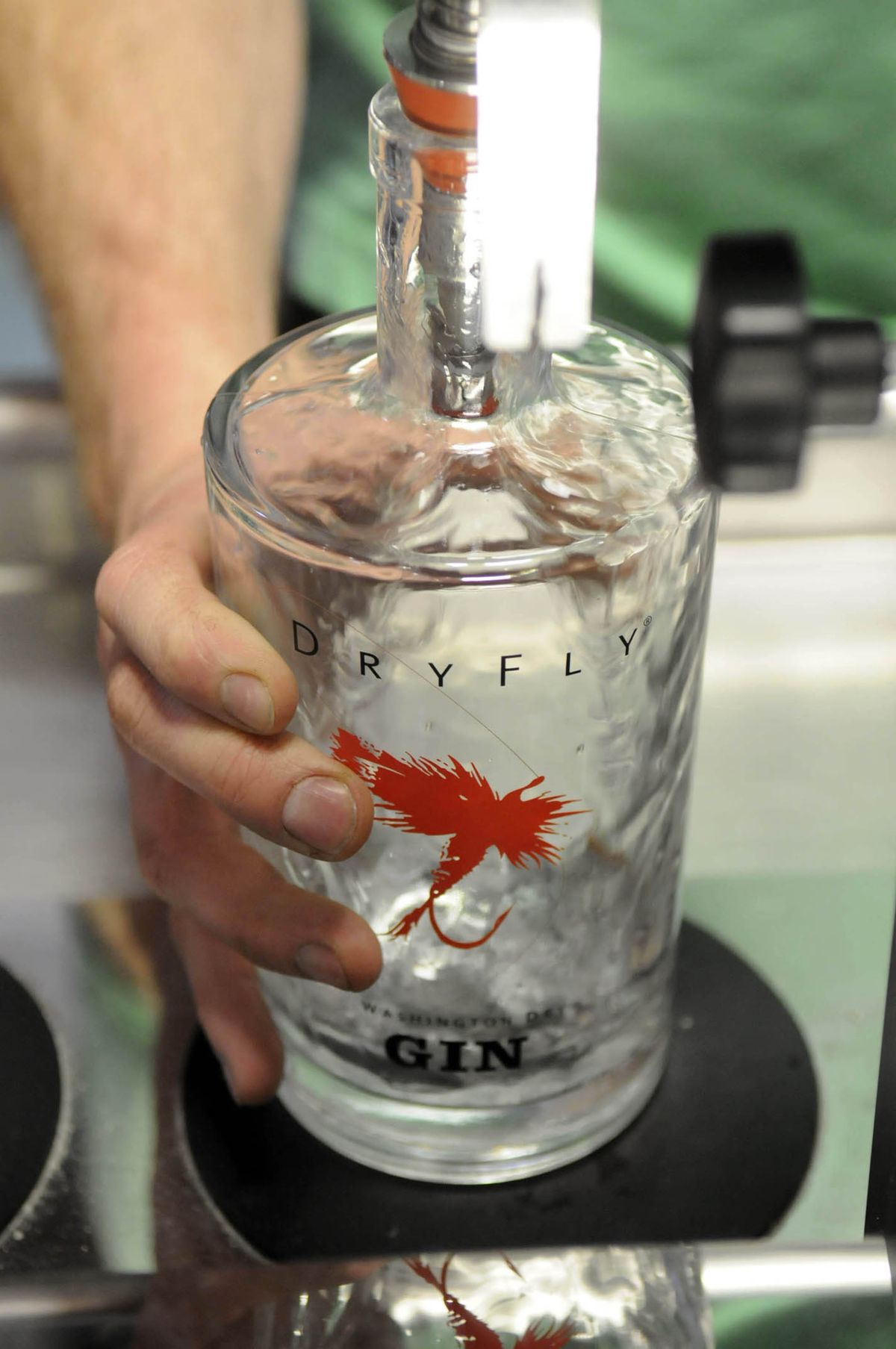Dry Fly Distilling has no shortage of help packaging its gin, vodka

Don Poffenroth and Kent Fleischmann get plenty of help at Dry Fly Distilling once their gin and vodka is ready for release.
That help comes each Saturday at Dry Fly’s Spokane distillery, where groups of volunteers work three-hour shifts bottling and packing the products for shipping.
For most volunteers, it’s more fun than work. They finish off their labors by having a free lunch, then enjoying what Poffenroth calls “sensory evaluation” of the Dry Fly inventory.
Which means the volunteers get three or four small shots of gin or vodka.
“Those volunteers find us,” Poffenroth said. “It’s grown popular entirely by word-of-mouth.”
Dry Fly first announced it needed volunteers about a year ago. Within a few months, help was lined up solid for all of 2008 and 2009. Poffenroth and Fleischmann will wait until this fall before starting to fill the 2010 signup list – which may fill up faster once Dry Fly releases its new all-wheat whiskey in a few weeks.
The new product – called Washington Wheat Whiskey – is the first of as many as four types of whiskey Dry Fly plans to release over time.
Since it takes a full year to age, Dry Fly’s Washington Wheat Whiskey output will be much smaller than the roughly 6,000 cases of gin and vodka the distillery will sell this year.
The owners say they’ll bottle the new whiskey entirely with friends and family, for this year anyway.
According to research Fleischmann and Poffenroth have done, this will be the only all-wheat whiskey commercially made in the U.S. and the first sold commercially here in the past 150 years.
Commercial whiskeys are made from barley, rye, corn and other grains. Only one other distiller, in Kentucky, makes a wheat-based whiskey. That blend, Bernheim Original, is 60 percent wheat, according to Poffenroth.
The owners are cautious but expect the new product to be a hit.
“It’s going to be very difficult to find any of it by the end of that first week,” Poffenroth predicted.
Added Fleischmann: “People are going to enjoy it. It’s a lot different from what people are used to. It has a bourbon-like sweetness.”
The first batch of about 80 barrels will be shipped to Dry Fly’s main customers – bars and restaurants around the state. The remainder will go to 260 state liquor stores. The whiskey will also be sold also at the Dry Fly office, at 1003 E. Trent.
The next two 2009 releases of Dry Fly whiskey will be an expected 50 cases in August and another 50 in November.
The wheat whiskey will be 80 proof – meaning it contains 40 percent alcohol by volume.
Dry Fly’s wheat whiskey is aged in 15-gallon barrels; one year in a 15-gallon barrel equals three or more years in a full size 53-gallon barrel, Poffenroth said.
Because the state just increased its share of Washington liquor sales, Dry Fly likely will boost the price of the new whiskey to about $47 a bottle, Poffenroth said.
Dry Fly gin and vodka will continue to be priced at about $30 a bottle, despite the state’s increased take, Poffenroth said.
Though Dry Fly will only ship three releases of wheat whiskey this year, next year is another story. Whiskey production will increase in 2010, and weekend volunteers will be needed to bottle it, Poffenroth said.
They’re already getting calls from people ready to sign up.
“I’ve been telling people to call us in the fall to schedule out the first half of 2010,” Poffenroth said.